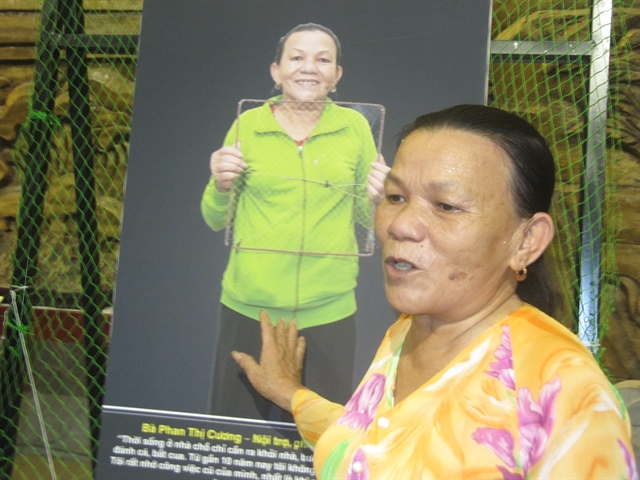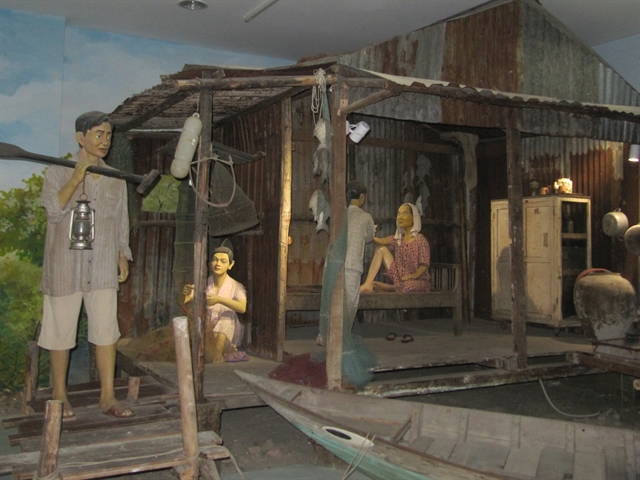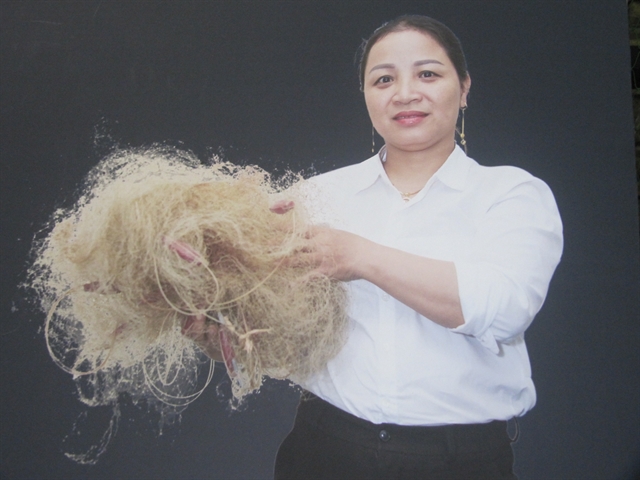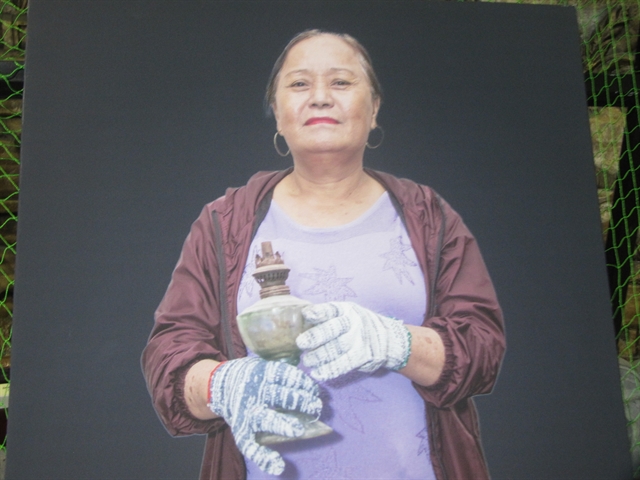 |
|
Phạm Thị Cươngshows her photo at an exhibition displaying a crab net. Cương's family lived in the Chồ House, or slum, on the east bank of the Hàn River 20 years ago.
|
 |
|
A copy of Nhà Chồ, or slum house, is exhibited at the Đà Nẵng Museum.
|
The exhibition, which marked the first collaboration between the museum and Bristol University, tells the story of some of the families using their words and objects they have selected from the museum collections, such as oil lamps, fishing nets and firewood stoves. These stories document the resilience of a community, their connection to the river and the changing livelihoods.
Between 2000 and 2005, the Đà Nẵng city authority relocated familes who lived in Nhà Chồ, or slums, along the east bank of the Hàn River to modern apartments in Nại Hiên Đông quarter in Sơn Trà District. This marked a significant stage in the development of the city, transforming Đà Nẵng into what is now one of Asia’s fastest growing cities.
 |
|
A photo of fishing net display at an exhibition, Fishing heritage and livelihoods in Đà Nẵng project, in Đà Nẵng Museum.
|
Traditional livelihoods such as fishing are under threat all over the world. Urban development, sometimes unregulated, has a huge impact on people’s lives. This exhibition reveals the resilience of a community when faced with the challenge of relocation and change.
Graeme Were, who is chair and professor of anthropology in the department of anthropology and archaeology at the University of Bristol, said the exhibition was the first collaboration between the museum and the University.
“It was told stories from fishing families who had lived in Nhà Chồ on the east bank of the Hàn River, and they witnessed rapid urbanisation in the city when buildings have been gradually built in Đà Nẵng,” Graeme Were said.
“We had four weeks to hear old stories and memories from the fishing community, and the changes of livelihood and quick development in the city. And the exhibition resulted from the fishing heritage and livelihood in Đà Nẵng project.”
 |
|
Awomen from Nại Hiên Đông poses with an oil lamp -- an object that had been used by the fishing community living on the east bank of the Hàn River two decades ago.
|
Nguyễn Văn Minh, a fisherman in Nại Hiên Đông ward, said: "Fishing tools remind me of my time living in the Chồ house in the past when everything in my family life revolved around the river and the sea. Nowadays, since moving to land, many things have changed, including my job.”
The exhibition funded by Knowledge in Action for Urban equality (University College London) will conclude today. — VNS
 A collaborative exhibition, Tales from the River Bank, has opened at the city’s museum, featuring photos and old stories of a fishing community on the Han River banks 20 years ago." itemprop="description" />
A collaborative exhibition, Tales from the River Bank, has opened at the city’s museum, featuring photos and old stories of a fishing community on the Han River banks 20 years ago." itemprop="description" />